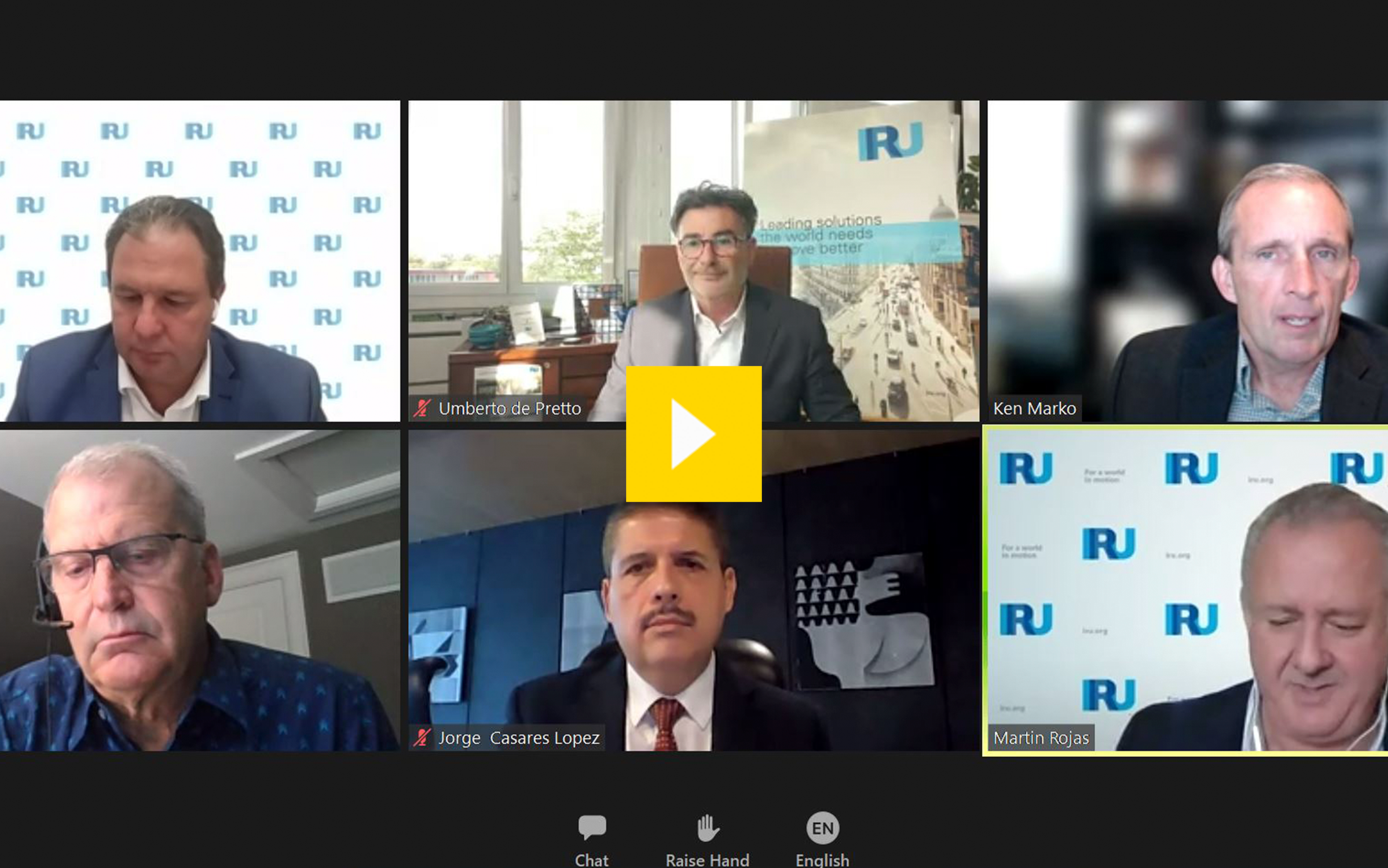IRU’s North American Transportation Forum has debated how road transport operators are managing the accelerated pace of decarbonisation and its impact on the sector.
Finding the right balance between reducing vehicle emissions and their CO₂ footprint, while ensuring that road transport operations continue to run efficiently to serve people and businesses, is a central aim for IRU.
An IRU North American Transportation Forum event held last week focused on how road transport operators, or motor carriers, are managing the fast pace at which decarbonisation is affecting the sector.
Three leading companies from Canada, Mexico and the US, covering different parts of the road transport sector, spoke about their experiences following an opening by IRU President Radu Dinescu, who also outlined IRU’s Green Compact, and closing remarks by IRU Secretary General Umberto de Pretto.
Radu Dinescu, IRU President, said, “Our greatest challenge is to reduce CO₂ emissions in transport to properly achieve global, regional and national timelines, but also to continue nurturing and developing the opportunities, economic prosperity and social harmony that road transport brings.
“The Green Compact is based on an open, flexible and collaborative multi-stakeholder approach. IRU is working in partnership with the industry to help it reach ambitious decarbonisation targets. We have to identify the most effective means to reach full decarbonisation by respecting regional diversity and national realities, and also openly share feedback, information and progress.”
Jorge Casares Lopez, who heads Alianza Trayecto, said, “As a transportation leader in Mexico, we are fully committed to working within our industry, from suppliers to fellow motor carriers, to reduce our carbon footprint. In that sense, we have undertaken research to see what technologies could best apply to our business model and to our vehicles.
“We are fully committed to looking at all the technologies being developed around the world to make sure that we can face the decarbonisation challenge and implement them where it makes sense.”
Ken Marko, Fleet Sustainability Senior Manager at US Foods, said, “We are still early in the industry as far as developing electric vehicles. But there are a lot of different suppliers that are participating in this, with a lot of electric vehicles being developed.
“For carriers, it is very important that they understand vehicles’ duty cycle and their range requirements, and how to define the right technologies to incorporate into their fleets. From a fleet perspective, there is really no silver bullet. There are a lot of technologies that can support sustainability initiatives, and that includes looking at operational efficiencies.”
Scott Tilley, Tandet Group President, said, “The best solution is to burn less carbon. Zero is less and would be a great target. But is it practical, real and available today? One challenge is if these technologies can operate in a country that spends up to five months at freezing temperatures, or below.
“But, more importantly, we need to look at strategies related to legacy issues within our industry so that we can make changes bit by bit that, when done thoughtfully and consistently, will make a difference.
“To me, our biggest challenge is changing the status quo. It really is in the hands of government and industry, and there will be resistance to this, to change the legacy things that we do. But we are committed to pushing forward.”
Umberto de Pretto, IRU Secretary General, providing closing remarks, said, “Governments have to start realising that everything, absolutely everything, depends on road transport. We have the CO₂ challenge and, as I have heard one of the other speakers say, ‘there is no silver bullet’. We have to look not only at a national level, but regionally, what is the best mix.
“I would like to invite you to work with us on our Green Compact, so that we keep basing it on reality. What could bring down CO₂ emissions, make our businesses stronger and get economies going.”
The North American Transportation Forum brings together IRU members, supply chain leaders, the wider industry and governments to improve cross-border transportation and logistics in North America. It is run in cooperation with IRU Members ATA, CANACAR and CTA.
Visit our events page for information on past and upcoming events.
Watch the event:

